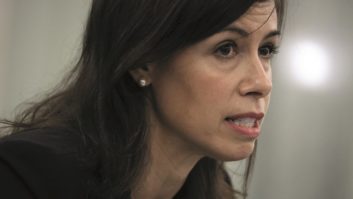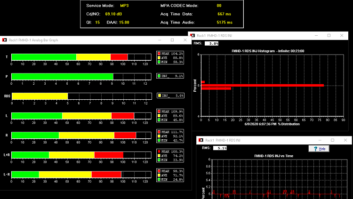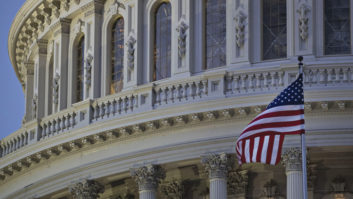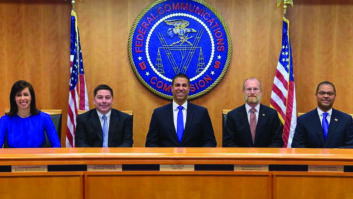
WASHINGTON Broadcast industry attorneys say a new administration and FCC chairman will lead to changes in how the Federal Communications Commission interprets and applies the Communications Act of 1934 and related legislation.
The independent regulatory agency, created by an act of Congress on June, 19, 1934, marks its 75th anniversary this year. It has tremendous flexibility in steering technology trends that will directly affect radio broadcasters and their operations, experts said.
President Barack Obama has nominated Julius Genachowski as FCC chairman. Assuming Genachowski is confirmed by the Senate, the president will still need to fill two additional spots on the commission’s five-person board — those that have been held by Republican Deborah Tate, who left in December, and Democrat Jonathan Adelstein, who will be leaving for a post at the Department of Agriculture.
Genachowski is a technology executive and a former Obama Harvard Law School classmate.
Experts are divided in their opinions on whether a Democratic administration will be more hostile to the interests of commercial broadcasters.
One expert said judging what the powerful regulatory board might look like in the next few years could be as easy as looking back at the leadership style of Genachowski’s fellow Democrat, former Chairman Reed Hundt. Genachowski in fact served as chief counsel to Hundt from 1993–1997.
“My recollection of the Hundt era is one of letting the marketplace decide and freeing up spectrum for new entrants,” said Garrison Cavell, president of broadcast engineering consulting firm Cavell, Mertz and Associates.
“Perhaps we might see more policy initiatives and less regulatory strictures than before. And a focus on increasing marketplace competition and diversity in stakeholders.”
Cavell said he thinks the agency’s focus will shift to broadband initiatives, new media digital evolution and network neutrality.

The current commission. Shown: Commissioner Adelstein, Acting Chairman Copps, Commissioner McDowell “This administration has an obvious need to bolster the economy and has made it clear it wants to make broadband more accessible. I believe Internet and broadband are clearly the darlings of this administration and the new chairman.”
Observers expect the commission to become more transparent in its decision-making process than it had been under Chairman Kevin Martin, whom many feel micromanaged the agency.
Martin, who was chastised in a congressional report late last year for a heavy-handed and non-collegial management style, said several times during his tenure that he did not in fact micro-manage and defended the openness of his practices. In a statement in January announcing his resignation, Martin said his philosophy “has been to pursue deregulation while paying close attention to its impact on consumers.”
However, transparency is only part of the challenge at the agency, said John Crigler, a communications attorney with Garvey Schubert Barer who specializes in public media.
Re-empower staff
“The greater problem is efficiency. They need more than just five people making decisions. That’s quite a waste of the FCC’s seven bureaus and approximately 1,800 employees,” Crigler said.
Chris Imlay, communications attorney with Booth, Freret, Imlay & Tepper P.C., said, “It’s not fair to equate the new administration with an anti-business agenda or a liberal bias. I do hope the Democratically controlled FCC might look harder at what is necessary to keep small commercial broadcasting companies competitive with larger broadcast groups.”
Imlay said he also hopes the commission will re-empower the competent staff that remains at the agency.
“The staff was often subject to unreasonable restraints in performing their jobs under the previous chairman. In essence they were paralyzed to do their jobs.
“It is difficult for radio broadcasters dealing with the FCC, because the decision-making on their issues has been concentrated on the Eighth Floor for far too long,” Imlay said. “The staff in the Audio Division is, in general, a genuine pleasure to deal with. However, they are often hamstrung in addressing issues because of the need to obtain approvals from the front office, or the commissioners.”
Imlay expects the commission’s decision-making to become more “decentralized over the next four years” and “more of a collaborative rulemaking process.”
Imlay, who also serves as general counsel for the Society of Broadcast Engineers, said the agency, which is working to develop a national strategy to get high-speed broadband into the hands of more people, must more forward to address the challenges of the new century.
“I believe broadband rollout will remain a focus at the commission — though I think the interests and concerns of licensed radio services have certainly taken a back seat in recent years to all things broadband.”
Some analysts expect to see diversification of media ownership to be a priority under Genachowski upon his Senate confirmation.
Translator apps.
“How the new chairman goes about this is hard to fathom,” said John Garziglia, communications attorney with Womble Carlyle Sandridge & Rice PLLC. “Any regulatory change that will truly result in a wider diversity of media owners will require dramatic changes in eligible buyers for stations now owned by the large groups. Even forced divestiture is not out of the question. The commission has a history of doing that with newspaper and broadcast station combos.”
Several pending broadcast proceedings will likely receive a lot of focus from the commission, Garziglia said.

Gary Cavell makes adjustments to the antenna phasor system at WMAL(AM) in Washington. The work achieved a power doubling for the station’s daytime operation in 2007. Photo by Mike Perryman, Cavell & Mertz “The localism proceeding comes to mind right away. I expect that some aspects of localism, such as enhanced reporting requirements and possibly a variation on community advisory councils, will be enacted,” Garziligia said.
Bringing the DTV transition to an orderly end and figuring out what to do with thousands of FM translator applications still pending from the 2003 filing window also will be priorities, Garziglia said.
“Once the questions surrounding the un-granted FM translator applications are resolved, the commission can move forward with the comparatively non-controversial rule change to allow FM translators to rebroadcast AM stations.”
Besides ownership, another issue sure to be a hot topic in this administration is the future of the Internet and whether the commission should regulate a medium that owes much of its success to a lack of regulation, analysts said.
“The Internet has thrived without regulation. My opinion is that if regulation is needed, then the FCC will look to Congress for guidance. I don’t expect the FCC to regulate it just because they can,” Garziglia said.
Expect the agency to seek out and place more value on engineering solutions in the decision-making process, according to several analysts.
“Updating the FM and AM rules to reflect the realities of the digital world is a top priority. I think the new administration will appreciate the value of technology and education when setting policy,” said Clarence Beverage, president of Communications Technologies Inc., a firm specializing in broadcast engineering and telecommunications design services.
Others said the commission will likely base more of its decisions “on the best-available, scientifically-valid evidence” when making regulatory policy and “not ideological predispositions.”
Jack Mullaney, president of Mullaney Engineering Inc., said, “The digital revolution and its many expanding outlets are going to be the greatest challenge facing a new FCC chairman. I’m not even sure how many of the FCC’s commissioners can spell AM, FM or TV. If it isn’t new wireless technology it is a low priority.”
Another consulting broadcast engineer expects the “gotcha mentality” of the agency’s Enforcement Bureau to fade away under a new chairman.
“Station inspections that result in large monetary forfeitures for rule violations frankly don’t have much relevance any longer,” this observer said. “It creates an adversarial relationship between the regulators and the regulated.”
Crigler of Garvey Schubert Barer thinks the industry will see new regulations and tougher enforcement of existing rules in the short term.
“However, I’m not convinced that the new commission will be more friendly to non-commercial broadcasting and more hostile to commercial broadcasting. With two new commissioners yet to be seated, it’s hard to guess how it will come out on close questions,” Crigler said. He made that comment before Adelstein announced his plans to leave; now the number of new incoming faces will be three.












